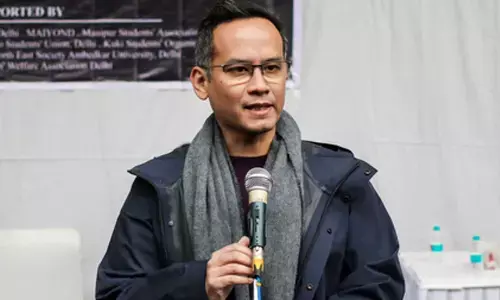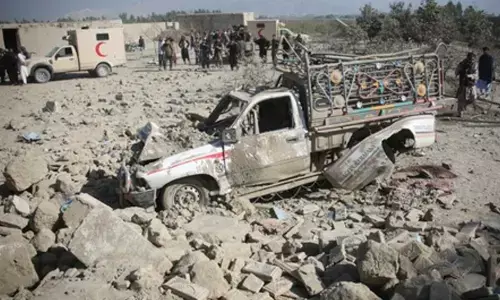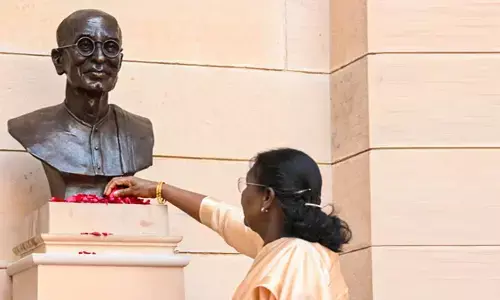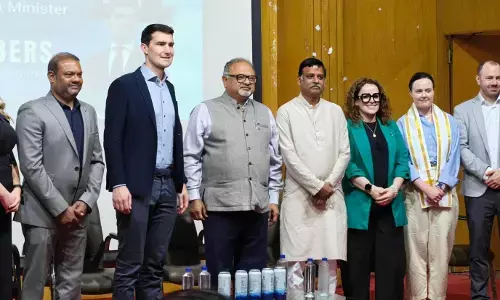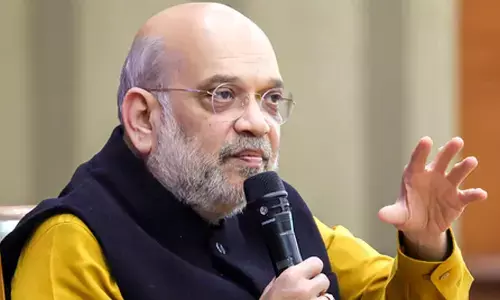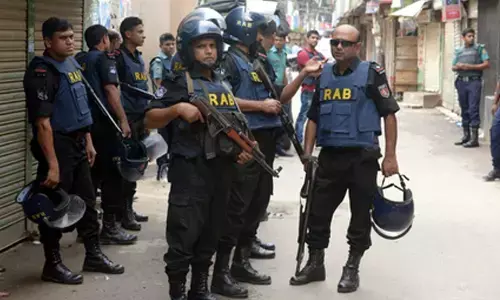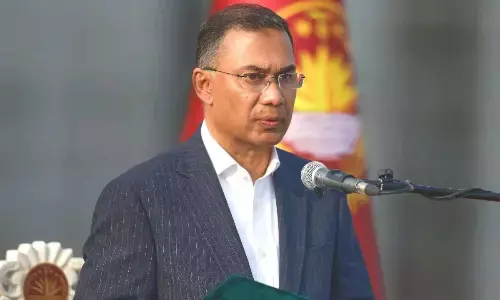WHAT NEXT

Malladi Rama Rao: WHAT NEXT, Revival of the Indian economy and governance apparatus which had been pushed into a crippling paralysis has to be the Priority One.
 The battle is over. Guns have fallen silent. NaMo has been anointed as the India hrudaya samrat. And India has proved to the world that it has become a mature democracy where aspiration, not caste or creed matters when chips are down. The pollsters have reasons to sport smile since Indian psephologists have also come of age while arm chair analysts have egg on their face. All good enough reason to go into a hyper gung-ho and NaMo Mojo.
The battle is over. Guns have fallen silent. NaMo has been anointed as the India hrudaya samrat. And India has proved to the world that it has become a mature democracy where aspiration, not caste or creed matters when chips are down. The pollsters have reasons to sport smile since Indian psephologists have also come of age while arm chair analysts have egg on their face. All good enough reason to go into a hyper gung-ho and NaMo Mojo.
What next? Revival of the Indian economy and governance apparatus which had been pushed into a crippling paralysis has to be the Priority One. This is an unenviable task left behind by Manmohan “weak” Singh. In his last days MMS tried to set things right by steps like allowing FDI in Pharma. But these are at best cosmetic.
The need of the hour is a return to PV days of May, 1991, and to give a fresh lease to his reform process. His master stroke was end to the license-permit quota raj that had made the Indian industry a hostage to the Hindu rate of growth. The Congress never gave him credit for the feat. In fact, as the mascot of the UPA, the Congress disowned this legacy, made the country to slip into Nouveau-Fabian Socialism and reinvented the Maa-Beta sarkar.
Result was the 2G scam and the Coalgate. The freebies that have no shelf life even in Amethi became the manna for the raj. I noticed this truism way back in May, 1991 itself when I had an opportunity to travel through the family’s pocket borough in the Sultanpur district of Uttar Pradesh. Why it has taken so long for a public manifestation of distaste for politics of so-called welfarism is a larger issue. It deserves a much wider debate probably with The Hans taking the lead since freebie politics have come to stay as legacy of MGR, NTR and YSR in South India going by trends in the Battle 2014.
As the NDTV-Hansa exit poll and post-poll opinion poll showed clearly, and now seconded by Modi tsunami across the length and breadth of the country, people want no doles; people want opportunities to lead a life of dignity in some comfort and a means to sustain the life-style. Well, this is aspirational India that has no religion tag; no caste label; it also has no time for slogans of any kind. Action is what it wants here and now; it is unwilling to shine under the reflex glory of a lucky few who have made it big on the national and international stage with or without State patronage. This places a huge responsibility on the chaiwala-son of a petty trader from the banks of Sabarmati, Narendra Damodardas Modi who is arriving on the Delhi scene after Ganga aarti in the holy city of Kashi. Simply put the people want him to replicate the Gujarat model on the national level quickly and without much ado.
Now the foreign policy agenda. The Americans are eager to do business with him though they have denied him a visa to visit the Big Apple for reasons which are rooted in lobbyist jingoism. Likewise, Pakistan and China want to work on openings available in India for business and investment. This is despite the hiccups that have come to characterise their relations with India.
The powers that matter in the land of the pure have just demonstrated their clout by forcing the civilian government to expel two Indian scribes from Islamabad because of their “unfriendly” dispatches. This retrograde step, as the External Affairs Ministry has termed the expulsion of Snehesh Alex Philip (PTI) and Meena Menon (The Hindu), may, indeed, be a calibrated trick to gauge New Delhi mood under the new sarkar.
Any return to the bus diplomacy that Atal Behari Vajpayee had practiced would be walking into a new trap. The bus diplomacy was punctured by General Pervez Musharraf with his Kargil war; Lashkar-e-Toiba (LeT) perfected the act by attacking Parliament building, a symbol of Indian democracy. The jihadi non-state actors, who dominate Pak milieu, are waiting in the wings, like always.
Expression “non-state actors” is Pakistan’s gift to security lexicon. It has provided Pakistan with a deniability regime and the luxury of injured innocence as we have seen right from 1947-48 tribal invasion of Kashmir. Kargil war and Mumbai mayhem are manifestations of the same faculty. Pragmatism and a business sense should therefore dominate the narrative insofar Pakistan is concerned.
In his first campaign for the White House, Bill Clinton read the pulse of America correctly and told the El Dorado country, “It is economy, stupid!” He fulfilled his promise by creating new job openings and giving a boost to the greenback. Yes, the reign of the 42nd President of the United States from 1993 to 2001 is remembered for the juicy tales of his relationship with a 22-year-old White House Intern, Monica Lewinsky, who is back in news these days with an auto-biography. The tryst with infamy has not come in the way of his popularity and it is all because of American life addicted to material comforts.
There is a message in this to India as well. It is that in these days when business has begun to dominate diplomatic narrative, our Modi sarkar, which, unlike UPA-1 and UPA-II and even NDA-1, has any alliance worry, will do well to tap the market opportunities even in areas India claims but doesn’t own - PoK and Aksai Chin. Both Pakistan and China are trying to work towards mutual moolah advantage in these disputed areas.
Road, rail and pipeline linkages are what the two all-weather friends are creating as a new Silk Road. The Gwadar to Xinjiang (North-West China) corridor under construction is a multi-billion dollar venture that would provide China with access to the Arabian Sea.
Spanning over 1.6 million square kilometres, Xinjiang borders Russia, Mongolia, Kazakhstan, Kyrgyzstan, Tajikistan, Afghanistan, Pakistan and India. Business and connectivity are the present day buzz words. So, it will be in India’s interest as much in the interest of China, even Pakistan for that matter, to close ranks for a passage to Afghanistan’s Wakhan Corridor.
Pakistan is perennially cash strapped; it generates revenue to meet just 70 per cent of its annual budget and banks on market borrowings to bridge the deficit. As of now it is on IMF dole and, therefore, has no money to spare. India and China can put their money on opening the land link to Afghanistan and beyond into the Central Asian Republics.
India and China have not allowed their border dispute – a legacy of Nehru era – to stand in the way of normal trade. Many Indian companies, the Reliance behemoth including, have emulated the American enterprise and made China their outsourcing and manufacturing hub. In fact, leading Chinese telecom giants are doing roaring business in India notwithstanding the concerns that are periodically voiced by various security agencies. Modi himself had visited Beijing and trade hubs in the land of the Great Wall. Put differently, there is enough justification to embark on Wakhan corridor venture even as the negotiations on territorial disputes linger on.


